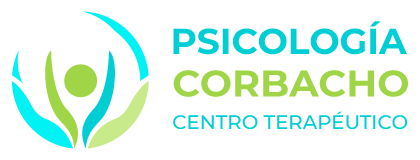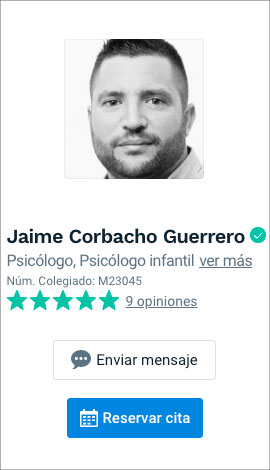Therapies






Table of contents
In this article, let's explain what it means to have high capacitiesThe following are some of the most common types of AACC and which therapies and treatments are the most appropriate to help these people develop their potential and face the possible challenges they may face.
What are high abilities (HCA) and how do they affect the mental health of people who have them?
High abilities are a set of cognitive, emotional and creative characteristics. that make a person perform above average in one or more areas. It is neither a disease nor a disorder.but a different way of perceiving and processing information. People with high abilities usually have a high overall intelligence, but they may also excel in specific areas such as language, mathematics, music, art or sports.
There are different ways of identifying and measuring high abilitiesbut none is infallible or definitive. Some of the most commonly used criteria are intelligence tests (such as the WISC or the WAIS), specific aptitude tests (such as the DAT or the CREA) or observation scales (such as the GATES or the RENZULLI). However, these instruments may have limitations and biasesand, therefore it is important to complement them with a comprehensive psychological evaluation. that takes into account the context and personal history of each individual.
People with high abilities have a number of advantages and disadvantages that can influence their psychological well-being. On the one hand, they tend to have a great capacity for learning, insatiable curiosity, boundless creativity and imagination, high sensitivity and empathy, and an original sense of humor. On the other hand, may face difficulties such as boredom in schoolThe main causes of this problem are: lack of motivation, frustration, low self-esteem, perfectionism, anxiety, depression or social isolation.
What is the most appropriate therapy?
Psychological therapy for people with AACC The main objective of this project is to facilitate the integral development of these people.respecting their uniqueness and diversity. To this end, we use an individualized and personalized approach that adapts to the characteristics, needs and interests of each person.
Psychological therapy for AACC may include different techniques and strategies, such as:
- Psychological and educational evaluation to identify the person's strengths and weaknesses, as well as his or her areas of interest and potential.
- Vocational orientation to help the individual discover his or her talents and passions, as well as the academic and career options that best fit his or her preferences and goals.
- Family counseling to support parents and educators in understanding and accompanying people with AACC, offering them guidelines and resources to promote their development.
- Cognitive enrichment to stimulate critical, creative and divergent thinking, as well as the ability to solve complex problems and learn autonomously.
- Social skills training to improve communication, empathy, assertiveness and cooperation of the person with others, as well as their integration in peer groups.
- Emotional skills training to promote self-awareness, self-esteem, self-confidence, self-regulation and stress management, as well as the ability to express and manage emotions appropriately.
- Cognitive-behavioral therapy to modify negative or irrational thoughts and behaviors that interfere with a person's well-being, such as perfectionism, fear of failure, anxiety or depression.
- Acceptance and commitment therapy to help the person to accept his or her difficult emotions and experiences without judging or avoiding them, as well as to act in accordance with his or her personal values.
- Humanistic therapy to enhance personal growth and the person's sense of life, as well as his or her capacity to choose freely and assume his or her responsibility.
- Gestalt therapy to favor the integration of the different parts of the person's self, as well as his or her contact with the present and the environment.
- Systemic therapy to address the relationships and contexts that influence the well-being of people. Offering tools to favor the integral development of the potentialities of people with high capacities.
Conclusions
In conclusion, people with high abilities are a heterogeneous and diverse group that requires specialized and personalized psychological care.. From our psychology clinic, we offer a comprehensive assessment, diagnosis and intervention service for people with AACC. and their families. If you think you or someone close to you may have high abilities and you want to know more about how we can help you, do not hesitate to contact us. We will be happy to assist you.
Clinical studies
Therapy and treatment of high abilities (AACC) in clinical psychology are a field of study that seeks to understand and address the specific needs of people with above-average intellectual potential.. There are several clinical studies that have evaluated the effectiveness of different interventions to improve the emotional, social and academic well-being of this group. Some of the most commonly used approaches are:
- Cognitive stimulationThe program consists of offering activities and challenges appropriate to the level and interests of people with AACC, in order to promote their intellectual development and avoid boredom or frustration.
- Educational guidanceThis involves advising families and schools on the most appropriate options for students with AACC, such as acceleration, enrichment or flexible grouping.
- Individual or group therapywhich aims to help people with AACC cope with possible psychological problems that may arise, such as low self-esteem, anxiety, perfectionism or social isolation.
- Emotional educationwhich is based on teaching people with AACC to recognize, express and regulate their emotions, as well as to develop social and communication skills.
These are just a few examples of interventions that have been successfully applied in the field of high abilities. However, further research is needed to better understand the characteristics and needs of this diverse and heterogeneous group, and to tailor treatments to each individual case.
Here are some links to the most important clinical studies related to AACC:
- González Urbina, Andrea, María Paz Gómez-Arízaga, and María Leonor Conejeros-Solar. "Characterization of perfectionism in high ability students: an exploratory case study." Journal of Psychology (PUCP) 35.2 (2017): 605-640.
- Algaba Mesa, Antonio, and Tatiana Fernández Marcos. "Socioemotional characteristics in infant-juvenile population with high abilities: a systematic review." Journal of Psychology and Education (2021).
- Naveiras, Elena Rodríguez. PROFUNDO: An instrument for the process evaluation of a high ability program.. University of La Laguna (Canary Islands, Spain), 2010.


